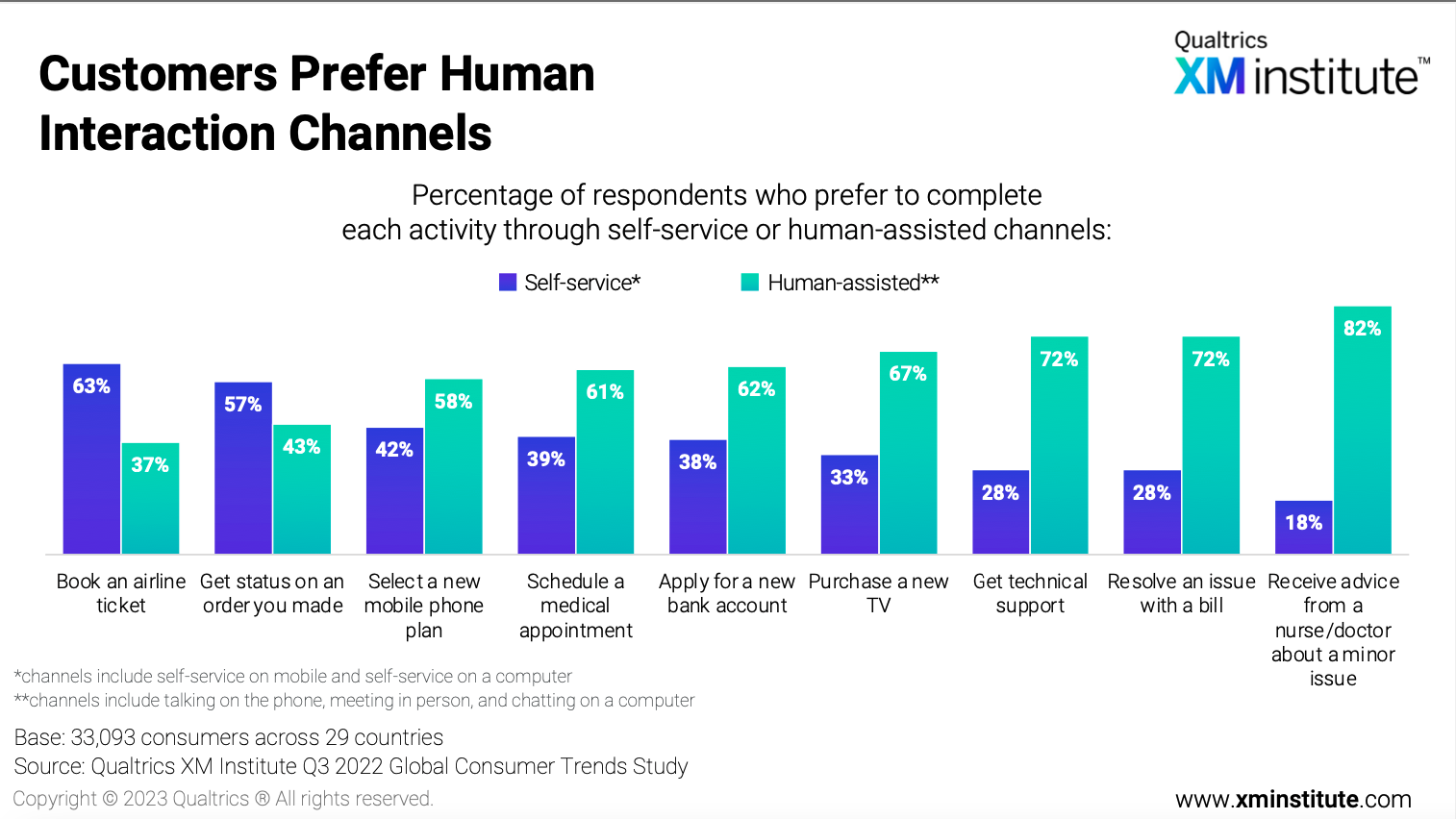We Prefer Humans
A graphic appeared in my inbox from the Qualtrics XM Institute, which monitors customer experience and how to manage it.
The key finding for me was that, in 80% of cases across nine typical interactions with product/service providers, customers preferred dealing with another human being and in several cases, up to 5 times more. In only two cases (booking airline tickets and getting a status update on an order placed) were they happy to use a remote service.
Humans are social animals. We enjoy interacting with others. One of the main contributors to the onset of dementia is social isolation.
Now look at many of the services we use. Most banks have some kind of online banking system towards which customers are directed. The same applies to many other service and product providers who tout their online systems as the solution to everything. Many times, it isn’t.
An amusing anecdote recounted to me by one of my mother‘s friends concerned her calling her bank branch and being told repeatedly that “the system” could answer any question. She rang 10 minutes later to explain that “the system” could not confirm to her, whether she had left her glasses at her branch when she visited earlier that day!
While all these remote channels are being introduced, customer experience seems to be on a downward trend and some service providers are even complaining that they don’t see enough of their customers. No surprise here considering that those very same providers have driven them away. In the UK, banks are closing branches due to costs (which admittedly are high for “bricks and mortar” branches) and also because they perceive that remote delivery systems (i.e. online banking) are sufficient to deal with most needs.
This also ignores another market: that of the computer illiterate. I’ve already written about this particular market – a generation of (mostly) elderly people who don’t use computers and see little benefit to them in doing so. Businesses, banks and other service providers are ignoring a potential section of their consumers. Give it another 15 to 20 years, however, and I suspect most of these customers will have left this world.
How much does your business rely on face-to-face interaction? How effective do you find yourself if you are able to deal with people face-to-face or online? In our business, we found that channels, such as Zoom only went a certain distance in supporting us. Towards the end of the COVID pandemic, everyone was heartily fed up with Zoom and remote working: ourselves, our clients and the institutions with whom we deal. Our first open “Live fair” saw a veritable tsunami of people coming to the venue we had booked.
We can never discount the face-to-face factor that forms such a critical part of our business. Those who do are likely to fall by the wayside.
I’ve spent more than half my life delivering change in different world markets from the most developed to “emerging” economies. With a wealth of international experience in international financial services around the world running different operations and lending businesses, I started my own Consultancy to provide solutions for improving performance, productivity and risk management. I work with individuals, small businesses, charities, quoted companies and academic institutions across the world. An international speaker, trainer, author and fund-raiser, I can be contacted by email. My website provides a full picture of my portfolio of services.
Labels: Customer Care, Leadership, Productivity, Selling, Social, Strategy



0 Comments:
Post a Comment
Subscribe to Post Comments [Atom]
<< Home